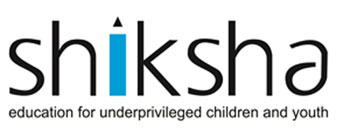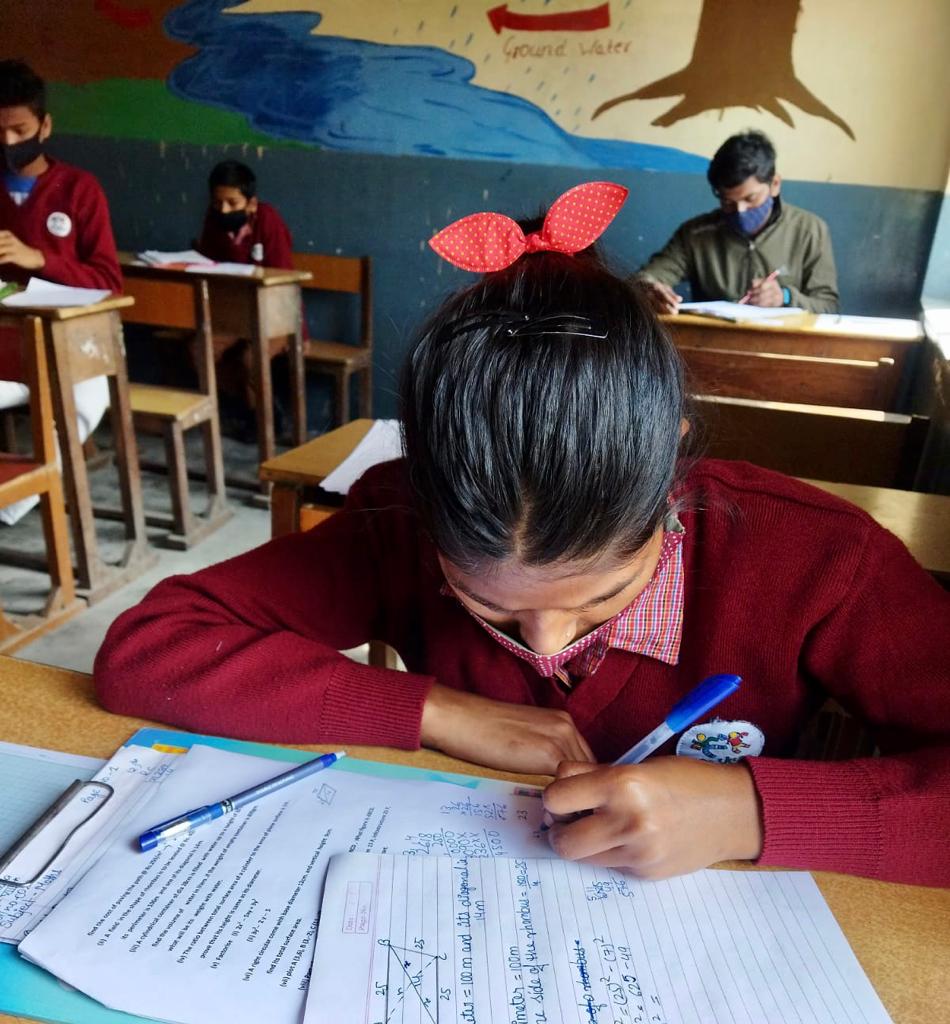‘Shiksha’ finding our way after the pandemic
Founded in 2002, Shiksha provides a totally free education to ~1,000 underprivileged children on the margins of society. Students who are otherwise unable to access the formal education system. Besides education we also provide free mid-day meals, free uniforms and stationery, and free health checkups and immunization. Our two Education Centers in Gurugram have no “fees book” and are inclusive, traditionally accepting the overwhelming majority of children who seek admission.
The ongoing COVID-19 pandemic has brought about the worst education and learning crisis in living memory. The prolonged onsite closure of schools has had catastrophic consequences and has interrupted and left learning unfinished. While poverty has always been a big challenge, to it has been added the huge and real challenge of ‘learning poverty’. It has long-term consequences, as most – particularly primary school students – have lost at least one language ability and at least one specific mathematical ability from the previous year. Children, especially younger ones, have forgotten what they have learned and are not ready in terms of their foundational skills to tackle the challenges of a grade-based curriculum. The pandemic has also widened preexisting opportunity and achievement gaps, affecting historically disadvantaged students the hardest. A major challenge is to ensure equitable and inclusive learning opportunities. The absence of a structured school routine and disruption of peer interactions has endangered the mental health and well-being of children, especially the most vulnerable ones, in ways that could have lasting repercussions. It will take years of patient work to repair this damage, secure educational equity and inclusion, and bridge learning gaps.
The three big challenges going forward are:
- Loss of skills due to lost instructional time during school closures. Short term fixes won’t be sufficient in bringing students back to grade level. Schools also need a medium to long-term strategy to make up for lost instructional time.
- The possibility of continued disruptions even after schools reopen. Any education solution cannot exclude the possibility of future COVID disruptions, and the system needs to be resilient enough to cope with such uncertainties.
- Increased inequity in access to education. A significant number of children, especially from marginalized groups, are at risk of dropping out of school due to displacement and economic deprivation.
The pandemic, however, also presents an opportunity to step back, think, plan and make fundamental shifts about how we educate our children. Shiksha would like to seize this moment to:
- Focus on foundational skills. Foundational literacy and numeracy are the gateway skills that help children acquire higher-order thinking skills in the future. Therefore, we need to prioritize and ensure all children can read and do basic math irrespective of their age and grade.
- Restructure what children are learning and how they are learning. Along with foundational skills, prioritize and identify what is most important to learn and reorient the curriculum to just that. Continuously assess children’s learning to determine where they are and then meet them at their level versus the teaching content they might not be fully grasping.
- Redefine the role of teachers and mentors. Emphasis would be placed on the instructional core that forms the backbone of the entire learning process. Teachers are critical drivers of student learning in schools. The challenges of COVID-19 have reinforced their irreplaceable and multi-faceted role in facilitating and guiding learning; in supporting students’ socio-emotional development inside and outside the classroom; in enabling a safe, healthy, and caring space for children to develop; in advocating for students’ well-being and connecting students to other social supports; as well as serving as key actors in supporting society’s broader social and economic well-being. Teachers will play a critical role as Shiksha seeks to overcome learning losses and enhance our education offerings. It is essential we invest in our teachers and empower them to lead education recovery efforts.
In developing an effective response, Shiksha would focus on two priority areas:
1. High-quality teacher professional development and learning throughout their careers. Teachers’ jobs, already complex before the pandemic, have grown more challenging. They will need to be ready to assess learning losses and support learning; develop targeted and sequenced remedial lesson plans; provide important social and emotional support to students; and do all this in innovative ways, leveraging remote, hybrid, and in-person methods. To improve student learning, a teachers’ professional development must be tailored, focused, practical and ongoing. It is important that they are supported in their learning and development through every stage of their careers, from pre-service, induction, to ongoing professional development opportunities throughout their time in the classroom.
2. Effective leveraging of technology for learning. The pandemic has also uncovered technology’s potential – and limitations – in supporting quality education for all. Technology can be critical in helping teachers assess learning loss, track progress, develop remedial planning, and teach at the right level. To reap its benefits, teachers must not only have access to technologies, but be supported and trained in developing skills to use them effectively. As such skills are built, flexibility will be important to match teachers’ needs.
We see three key principles that define how these two priorities be acted on:
- Designing of learning recovery policies and planning should actively involve teachers themselves.
- These efforts must be guided by a vision of building forward better – education leaders need to focus on building more equitable, effective, and resilient educational systems.
- Teacher policies must be designed and implemented with a systems perspective. Supporting teachers effectively throughout their career trajectories requires effective, coherent, and well-articulated systems, not isolated structures, or one-off solutions. Effective teacher policy must be developed with a clear vision and end goals in mind, aligned and connected to other system levers for sustainable and lasting change.
Ultimately, supporting our teachers’ preparation, development, learning, and empowerment throughout their careers is necessary to build strong, resilient, equitable, and effective educational systems. How educators engage with students and instructional materials, including education technology, is crucial for learning, as educators are the most important school-side factor in student learning. Digital and at-home learning have redefined the role of teachers and they need to be reoriented to their new roles, which can no longer limited to the classroom. Likewise, teachers must have mentors to support their continuous professional development and help them stay motivated.
The NEP (National Education Policy) 2020 makes it in the best interest of all stakeholders to start developing/skilling, upscaling and preparing educators for embedding NEP in their educational spaces. As per NEP 2020, we need to prepare our students for more rapid change than ever before, to learn for jobs that have not yet been created, to tackle societal challenges that we can’t yet imagine, and to anticipate and prepare for technologies not yet invented. We need to prepare students for an interconnected world in which students understand and appreciate different perspectives and world views, interact successfully and respectfully with others, and take responsible action toward sustainability and collective well-being.
Educators at our two Shiksha Education Centers are committed and well-meaning, but urgently need to be reskilled/upskilled and provided in-service training, especially in view of NEP 2020. This includes continuous up-gradation of capabilities throughout their period of service, focusing on two elements of teacher competence: professional practices and language proficiency
Against this backdrop, Shiksha’s priority is to urgently on-board an experienced, trained and committed professional who can be a mentor-cum-pedagogical leader-cum-NEP coordinator who will work as a team with our principals and other educators at our Shiksha Education Centres. As Shiksha charges no fees from its students, it would need dedicated new funding for this specific purpose. Such a professional will enable our students to minimize and overcome their learning losses, secure continuous professional development of our teaching staff, mitigate the impact of unfinished learning, and help Shiksha students successfully adapt to the requirements of NEP 2020 and the challenges of the post-Covid world.
References:
https://teachertaskforce.org/knowledge-hub/call-greater-investment-teachers-and-teaching
https://www.unicef.org/media/73326/file/COVID-Climate-Advocacy-Brief.pdf
https://en.unesco.org/covid19/educationresponse/globalcoalition
https://teachertaskforce.org/what-we-do/knowledge-sharing-and-creation/policy-dialogue-forum

